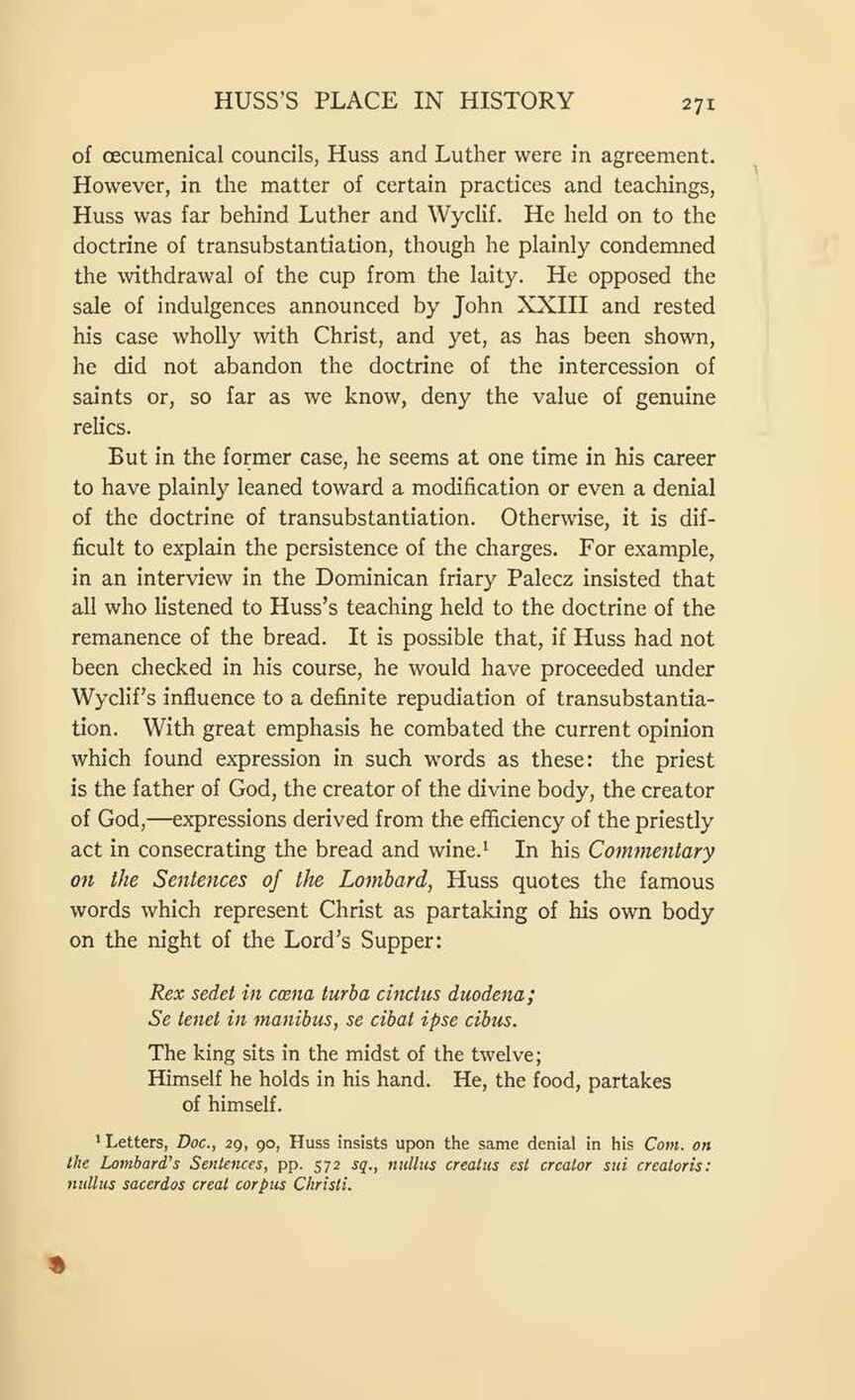of œcumenical councils, Huss and Luther were in agreement. However, in the matter of certain practices and teachings, Huss was far behind Luther and Wyclif. He held on to the doctrine of transubstantiation, though he plainly condemned the withdrawal of the cup from the laity. He opposed the sale of indulgences announced by John XXIII and rested his case wholly with Christ, and yet, as has been shown, he did not abandon the doctrine of the intercession of saints or, so far as we know, deny the value of genuine relics.
But in the former case, he seems at one time in his career to have plainly leaned toward a modification or even a denial of the doctrine of transubstantiation. Otherwise, it is difficult to explain the persistence of the charges. For example, in an interview in the Dominican friary Palecz insisted that all who listened to Huss’s teaching held to the doctrine of the remanence of the bread. It is possible that, if Huss had not been checked in his course, he would have proceeded under Wyclif’s influence to a definite repudiation of transubstantiation. With great emphasis he combated the current opinion which found expression in such words as these: the priest is the father of God, the creator of the divine body, the creator of God,—expressions derived from the efficiency of the priestly act in consecrating the bread and wine.[1] In his Commentary on the Sentences of the Lombard, Huss quotes the famous words which represent Christ as partaking of his own body on the night of the Lord’s Supper:
Rex sedet in cona turba cinctus duodena;
Se tenet in manibus, se cibat ipse cibus.
The king sits in the midst of the twelve;
Himself he holds in his hand. He, the food, partakes of himself.
- ↑ Letters, Doc., 29, 90, Huss insists upon the same denial in his Com. on the Lombard’s Sentences, pp. 572 sq., nullus creatus est creator sui creatoris: nullus sacerdos creat corpus Christi.
